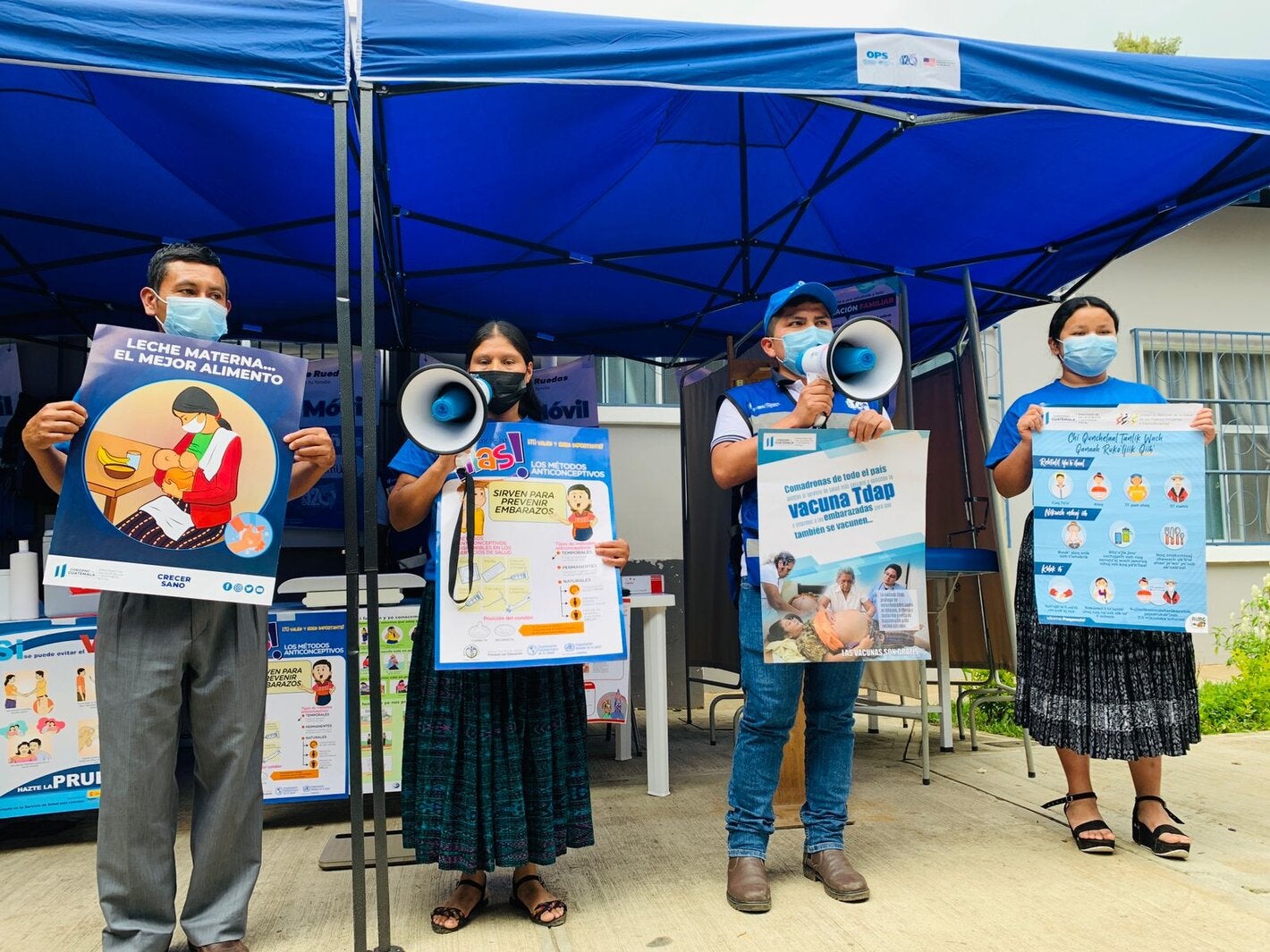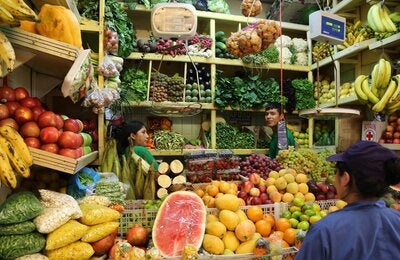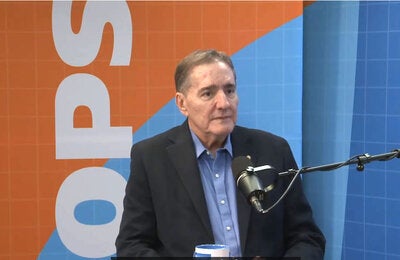
Guatemala, September 21, 2022. The Ministry of Public Health and Social Assistance of Guatemala, through the General Directorate of Integrated Health Care Systems and the Health Area Directorate of the department of Alta Verapaz, presented their work in conjunction with United Nations cooperation agencies to bring primary prevention services to remote communities.
Based on the deployment of mobile care brigades, these efforts have focused mainly on vaccination, weight and height monitoring, and other priority health programs affected by the COVID-19 pandemic.
Two strategies are being implemented in this region of Guatemala, one focused on nutrition and the other on vaccination through the initiative Salud Sobre Ruedas (Health on Wheels). Its objective is to enable rural communities in Alta Verapaz to access prevention and vaccination services through mobile brigades. The Ministry of Public Health and Social Assistance leads this initiative with the technical support of the Pan American Health Organization (PAHO) in Guatemala and financial support from the United States government.
Between August and October 2022, 200 communities in Alta Verapaz were visited by 19 brigade units, including a team of nurses and outreach workers who speak the local language, with vehicles dedicated to community activities.
Before each brigade arrives in a community, the health staff carries out community outreach activities and sets up information kiosks with loud speakers at focal points to inform the community about the services on offer and thereby increase the demand for them.
"To this date, we have 19 brigades in Alta Verapaz, which have focused on the areas with the lowest vaccination coverage. More than 26,000 medical appointments have been given from August to the present. This has been achieved with the effort and dedication of each health worker and with the support of donors," said the Vice-Minister of Primary Health Care of Guatemala, Edwin Montúfar.
Marc Rondy, Immunization Advisor and Surveillance Focal Point for PAHO on COVID-19, said, "In 2021, PAHO addressed a request for support from the Ministry to implement socio-anthropological studies to understand the reasons for non-vaccination against COVID-19 throughout the country, including Alta Verapaz. These analyses generated specific information that allowed for adequate community promotion. When the idea of Health on Wheels was created, we wanted to take advantage of all the lessons learned to ensure that this strategy would increase the acceptance of vaccination, including the regular vaccination schedules of children, COVID-19, and primary health care."
From August 8th to September 16th, 6,565 doses of vaccines were administered to children from zero to five years of age, 68 doses of human papillomavirus (HPV) vaccines were administered to adolescents, and 5,304 doses of COVID-19 vaccines were given. Additionally, 1,336 children under two years of age were dewormed, 1,327 children under five received supplements, and 5,574 children were monitored for weight and height. Twenty-one children with acute malnutrition were diagnosed and monitored. Among adults, 1,108 pregnant women attended, and a total of 7,482 general consultations were made.
"This initiative continues the United States' commitment to the Guatemalan people to overcome the COVID-19 pandemic. This, through the donation of 8.5 million doses and more than US$ 32 million in technical assistance as well as donations of syringes, freezers, ventilators, mobile hospitals, laboratory equipment, COVID-19 testing, and protective equipment," said Daniel Fennell, Deputy Chief of Mission at the U.S. Embassy in Guatemala.
In addition, UNICEF and the World Food Program (WFP) are supporting the deployment of the brigades that respond to two simultaneous problems: the high food and nutritional insecurity in the country, and the increase of severe acute malnutrition, as well as the low vaccination coverage in rural communities.
The Health Area Directorate of Alta Verapaz leads the brigades in coordination with the Municipal Commissions for Food and Nutritional Security and the local health centers, which use official records and guidelines for assistance. The brigades coordinate with community leaders and train "agents of change" to promptly identify children affected by acute malnutrition and the danger signs of malnutrition and pregnancy. These efforts also guide families on breastfeeding and nutrition for healthy growth.
Carlos Carrera, UNICEF Representative, said: "Integral nutrition and health brigades are a key strategy for maternal child health and nutrition. Providing these services to the most excluded and vulnerable population, starting at pregnancy and with emphasis on early childhood, together with other actions, is the key to breaking the vicious cycle of poverty and inequality. I hope this model can be extended as soon as possible throughout the country to leave no one behind.”
The United Nations Resident Coordinator, Miguel Barreto, said that “we are committed to all Sustainable Development Goals (SDGs). In this case, we have a strong interest in achieving SDG3 and SDG2, coordinating and implementing efficient activities to advance the 2030 Agenda and the (national development plan) K’atun 2032.”
Through a joint effort between the Ministry of Public Health and Social Assistance and the United Nations agencies PAHO/WHO, UNICEF, and WFP, the reach of the brigades of integrated health and nutrition care is being maximized. One characteristic of these brigades is the organization of activities with the Department of Health Promotion and Education and community leaders. This is under a system that respects the social dynamics recognized and endorsed by the population in community assemblies, which increase the acceptance of services, generate demand, and strengthen relations between the health sector and the communities.
Outside of Alta Verapaz, with funding from the United States, PAHO will donate 12 customized and equipped vehicles to implement brigades in remote places to replicate the Health on Wheels strategy in other departments of Guatemala. UNICEF and the WFP are implementing brigades in other health area directorates, such as Huehuetenango, Escuintla, Quiché, Suchitepéquez, Zacapa, and El Progreso.



